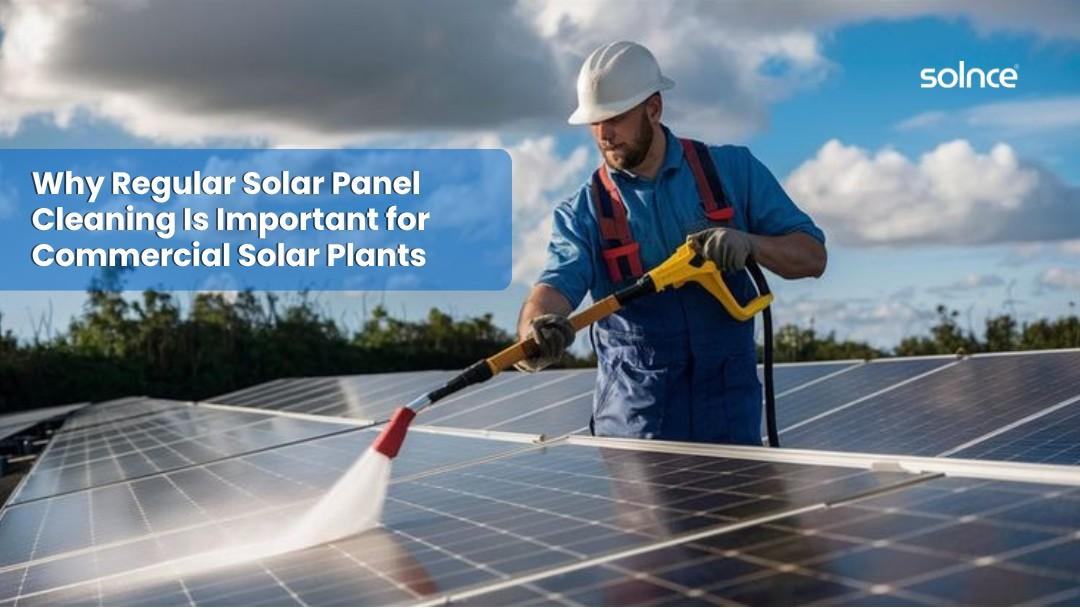
Finding the right solar panel that suits you, and your needs? Then yes, you're on the right platform. Did you know that, though the sun is 90 million miles from the earth, it takes less than 10 minutes for the light to travel from that much distance! Then why pay bills and empty your pockets when such a cost-effective solution is here? Why not utilize the sun's energy with the use of the solar panel that fits in your home?
Wondering which solar panel to have? Let me serve a quick guide to you. There are different types of solar panels available globally. However, in India, you'll get 3 options to buy solar panels. They are Monocrystalline, Polycrystalline, Thin-film solar panels. These are categorized based on multiple factors like their Shape, Color, Efficiency, Uses.
Choosing technology? Don't worry. We’ll guide about:
- Different types of solar panels and their basics.
- Advantages and Disadvantages of each.
- How to select proper solar panels based on your requirements.
Different Types Of Solar Panels
- Monocrystalline Solar panels
- Mono means single(only one). Mono panels are made from a single continuous Silicon crystal structure. Because of the individual silicon crystal, their efficiency (achieving maximum productivity) is high compared to other types of solar panels.
- These panels generally appear black or deep blue, and to identify Mono panels, glance at their cell shape that is rounded with cut-cornered.

- 'Poly' means 'multi', so the are composed of multiple fragments of silicon crystals that are melted together, making the process more rapid and likewise affordable
- Imagine. If you're given all the 3 types of solar panels, then will you be able to recognize them? If not, let me guide you.
- Remember that these panels have a jumbled surface with a light blue appearance, consisting of rectangular and square-shaped cells.

- Thin-Film Solar panels
- Thin-film solar panels, also known as 2nd Generation solar panels or Amorphous silicon solar panels. Are you aware of the fact that these are thin-film solar panels? Let me explain it to you.
- These solar panels consist of cells that are around 350 times thinner than the cells of Mono and Polycrystalline panels. These panels are made by integrating one or more thin layers of PV material like Amorphous Silicon or Cadmium Tellurium etc. onto a solid surface like glass or metal.
- Panels are aesthetically very impressive as they can be placed very close to the rooftops, so it feels like it is a part of the rooftop.

How To Opt for the best Solar Panel Based On Your Requirement?
- Remember, before purchasing solar panels for your home, some of you might hunt it on Google and some may not. But, because in India, every manufacturer claims to provide 25 years of warranty, and some of them market themselves as a Tier-1 solar panel company.
- It happens, or even you may have experienced, that many of the solar merchants claim to be using Tier-1 Solar panels to misguide you stating it is one of the highest quality panels available. But honestly, Tier-1 doesn’t hold any relation to the efficiency of the panel.
- Not related to efficiency? So, what does Tier-1 mean? The Tier-1 is a ranking scale that is proffered by Bloomberg New Energy Finance Corporation to rank solar manufacturers in terms of their financial stability and banking transactions.
Categorize the Tier-1 solar panel manufacturers based on the following standards:
- The company should have been producing solar panels for 5 years or more
- The company should have a stable and robust balance sheet or be publicly listed.
- The company should have Fully Automated panel manufacturing systems
Here, you're acknowledged about Tier-1 solar panels. But a mastermind should know about one significant fact that is mentioned below.
- Interestingly, for a residential solar power system, TATA is the only Tier-1 brand in India.
- There are many other well-known brands like LG, TRINA, Panasonic, Jinko, Canadian Solar, etc. defined under the Tier-1 tag. These brands are more expensive than other Tier-2 brands but provide better quality for higher wages.
Clear with the Tier-1 solar panel company, Now it's time to uncover the mystery behind 25 years of warranty assured by the businesspersons.
25 Years Of Warranty, Truth or Myth?
- The solar panels possess a long lifespan with 25 years or more warranty. Understanding this in detail.
- This is an Output production warranty, which means the panels will work effectively for 25 years with a mentioned degradation factor. The degradation factor describes the drop in output that every solar panel experiences over time. The degradation factor ranges from 0.7-1%.
- For example, Suppose, after a year, the cell efficiency of a panel decreases by around 1%, and the mentioned degradation factor is 0.7%. In this case, be sure that your product is eligible for replacement/repair.
- Most of the manufacturers proffer 10 years of product warranty, stating that faults occurring in the product will be replaced/repaired by the company. (you'll get 10 years of product warranty and 25 years of output warranty by the manufacturer, so get notified)
Tips To Select The Panel That Fits Your Purpose:
- Where do you want to install the system?
For Residential purposes or commercial (offices, industry)
Residential system
- The solar residential solar subsidy benefits from the government, which varies across states.
- Want to reduce the costs? Remember: To minimize the cost of the system use Poly panels which are cheaper than the Mono panels consisting of good efficiency. You'll be benefitted from product and output warranty from the manufacturers.
Commercial system
- Our primary focus is to get maximum output with less space utilization. Isn't it? If this is the case, it is recommended to use Mono panels to get high efficiency and longer life span. Now here, it might be a little costly, but output production will be high, so it is a better option.
- We always focus on production when it comes to choosing a solar panel for commercial uses. Utilize less space and benefit more output than any other panel.
Temperature Coefficient of Panel from the manufacturer Datasheet:
- Believing that temperature increases the outputs of the panel will trouble you. Example: In summer “solar panels output production is huge”, but that's not real anymore.
- Fact: Surrounding temperature increases, then the output of a panel decreases. The temperature coefficient of a panel is the rate at which the production of a panel decreases with a one-degree rise in temperature. Be sure to curb this factor in the solar panel datasheet.
The efficiency of a Panel from manufacturer Datasheet:
- It is favorable to choose a high-efficiency product. From the datasheet, you can find the efficiency of the solar panels. Though there won’t be much difference, still it matters the most.
Stability of the company and offers
- Every manufacturer yields 25 years of output warranty and 10 years of product warranty, which is where you're confused. Wondering where to purchase from?
- Remember: It is advisable to work with well-known companies having strong roots and being in the business for a long time. Most businesspersons offer a free annual maintenance contract, which should be studied in detail.
At last, we strongly recommend taking a wise decision by considering the facts and truths mentioned in this article rather than making a decision based on product price only.





